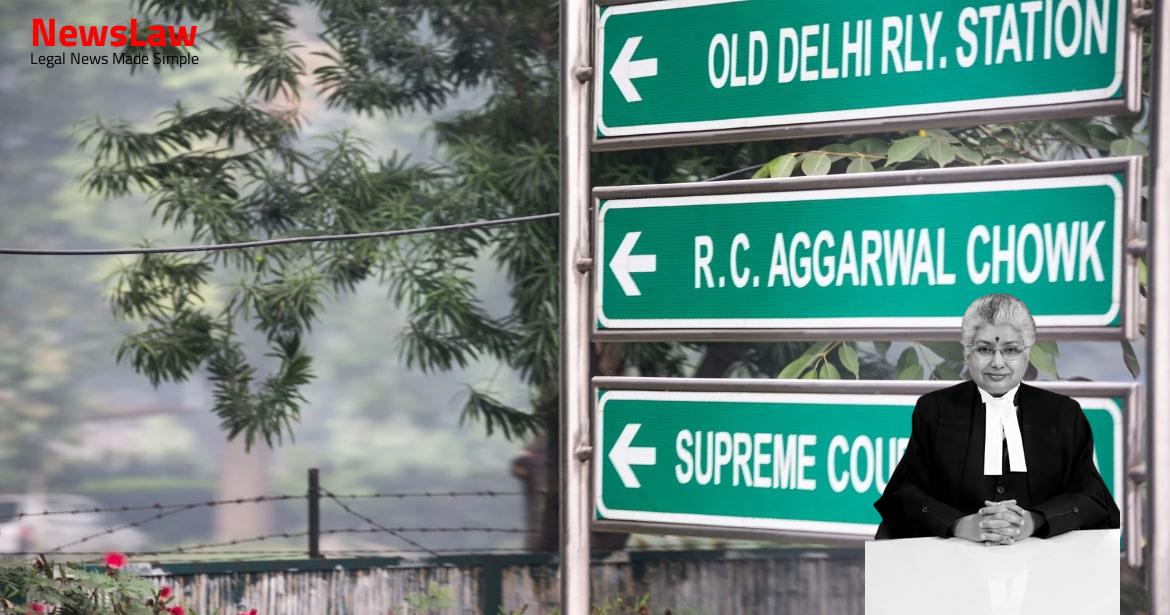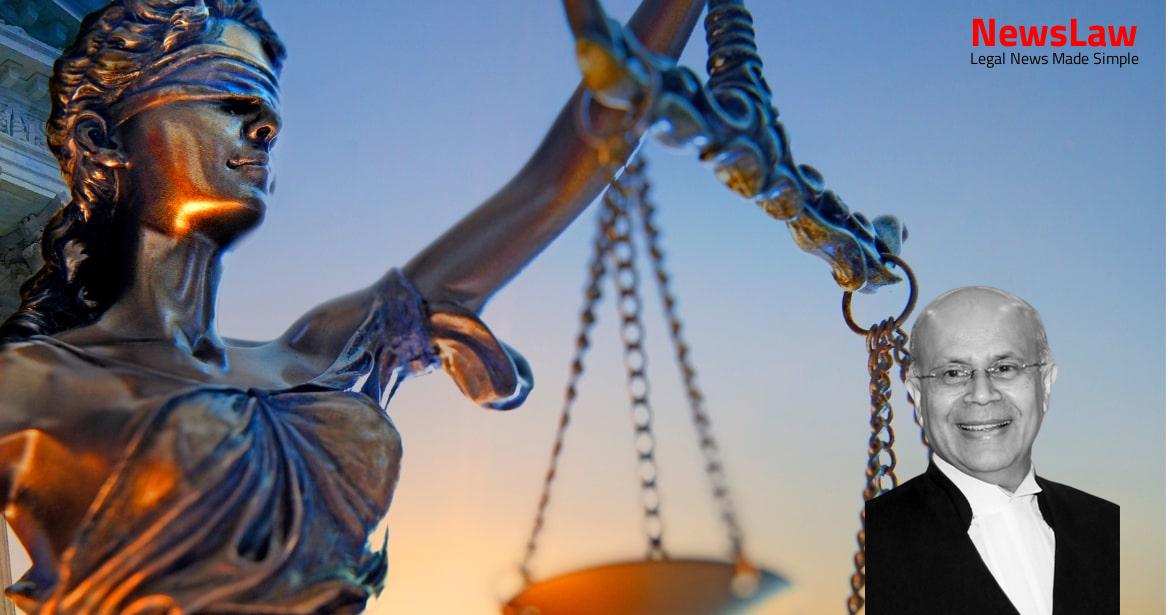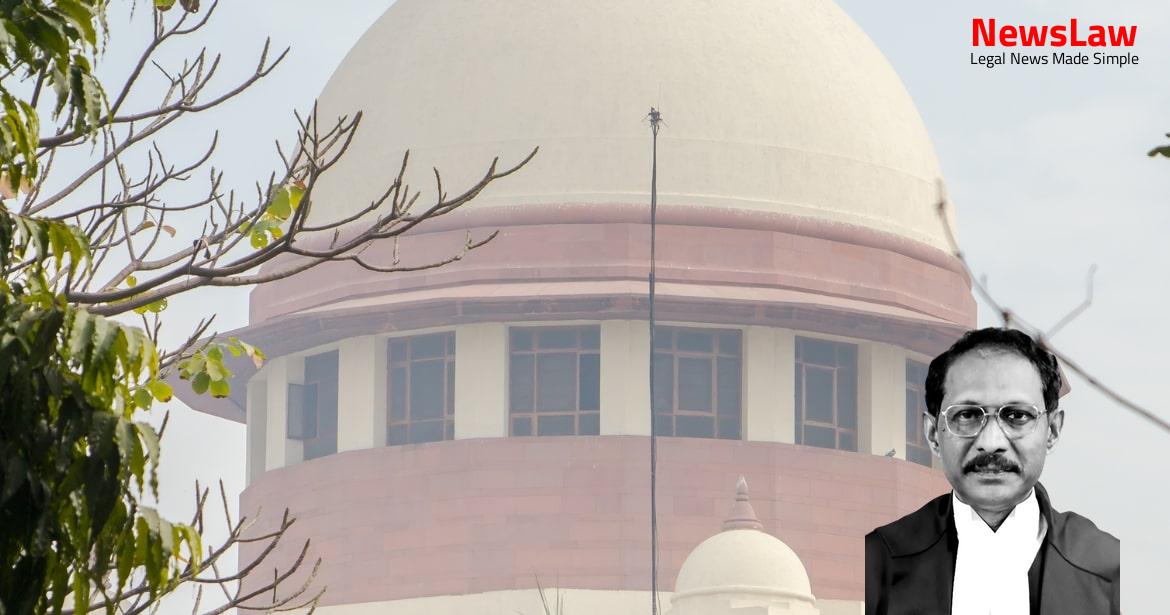Discover the intricacies of a legal case where the court analyzed the provisions of Section 13-B of the Hindu Marriage Act to grant a divorce by mutual consent. The case highlights the importance of legal settlements between parties, setting a precedent for future similar cases. Stay tuned to delve into the legal insights provided by the court in this decision.
Facts
- The petitioner-wife and respondent-husband have agreed to dissolve their marriage by mutual consent on certain terms and conditions.
- The settlement includes the payment of Rs. 28 lakhs by the respondent-husband to the petitioner-wife, which has been received in two installments.
- The parties have arrived at an amicable settlement and appeared before the Court with their respective advocates.
- The transfer petitions filed by the parties have been connected and heard together, and are being disposed of by a common order.
- The matter was referred to the Supreme Court Mediation Centre during the pendency of the petitions, and a mediated settlement has been submitted by the Centre.
- As per the settlement dated 13.12.2021, the parties have decided to seek dissolution of their marriage by mutual consent under Section 13-B of the Hindu Marriage Act, 1955.
- The parties are present before the Court and request that the transfer petitions be disposed of in accordance with the settlement through the exercise of jurisdiction under Article 142 of the Constitution of India.
Also Read: Analysis of Tax Exemption for Enemy Properties
Arguments
- Petitioner-wife received a necklace set from the respondent-husband.
- Petitioner-wife has no further claims against the respondent-husband.
- Both parties have no objection to the cases being disposed of by granting divorce by mutual consent.
- Certain cases filed by the parties against each other will be withdrawn within fifteen days.
- Petitioner-wife has no objection to the marriage being dissolved by a decree of divorce by mutual consent.
- Stipulation of six months’ period in Section 13-B of the Act may be dispensed with based on a relevant court judgment.
- Learned counsel for the petitioner submitted that the marriage may be dissolved by granting divorce by mutual consent under Section 13-B of the Act.
- The petitioner seeks divorce through mutual consent as per the provisions of the law.
- Reliance is placed on Article 142 of the Constitution to dissolve the marriage between the parties.
Analysis
- In paragraph 10 of the Settlement Agreement, the details of the cases are outlined.
- The settlement agreement dated 13.12.2021 between the parties has been accepted and taken on record.
- The stipulation of six months as stated in Sub-section 2 of Section 13-B of the Act is dispensed with.
- The settlement agreement appended to Transfer Petition No 618 of 2021 is taken on record and perused.
- The settlement agreement for dissolution of the marriage by a decree of divorce by mutual consent is dated 13 December, 2021.
- The parties have been at loggerheads, filing petitions for various matters including restitution of conjugal rights, maintenance, and a pending criminal proceeding.
- The parties are living separately with no possibility of reconciling their disputes and co-habiting together.
Also Read: SC Clarifies: Choice of Depreciation Method Allowed Until Return Filing
Decision
- The marriage between the parties on 24.11.2017 in Bharuch is dissolved by a decree of mutual consent under Section 13-B of the Act.
- The settlement agreement shall be considered part of this order.
- The terms of the settlement are lawful and valid.
Case Title: POOJA BHUNESHWAR PRASAD SHARMA Vs. ASHISH VINAYBHAI MISHRA (2022 INSC 540)
Case Number: T.P.(C) No.-000618 / 2021



